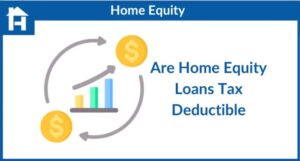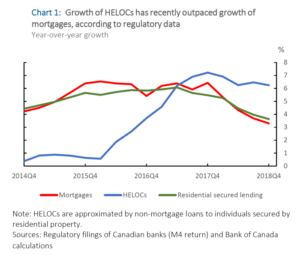
Welcome to the exhilarating world of Credit building, where numbers dance and your financial dreams can take flight! Picture this: you’re strutting down the street like a financial peacock, proudly flaunting your stellar credit score. But hold on! Before you can strut, you need to understand why credit building is as essential as that last piece of pizza at a party.
So, what exactly is credit building? It’s like playing a game of financial Jenga—balance is key, and one wrong move can send your score tumbling. From the mysterious realm of credit scores to the magical methods of establishing credit, we’re here to guide you through the maze. Get ready to transform your credit history into a success story that even your future lenders will rave about!
Credit Building Basics
Building credit is like planting a financial garden; it requires patience, care, and the right amount of sunlight (or in this case, responsible spending) to thrive. A strong credit history not only helps you snag that dream home or car but also gets you some sweet deals on interest rates. Let’s dig deeper into the nitty-gritty of credit building, where we’ll explore scores, types, and methods to keep your credit health in check.
Importance of Credit Building
Establishing credit is a crucial part of personal finance that can determine your financial future. A solid credit score is your golden ticket in the world of loans and mortgages. It’s not just a number; it reflects your creditworthiness to lenders, which can affect everything from the interest rates you receive to your ability to rent an apartment. A higher score often equates to lower costs of borrowing, which means more money for pizza and movie nights instead of interest payments!
Types of Credit Scores
Credit scores come in various flavors, each with its unique recipe for calculation. Understanding these can help you navigate the credit landscape like a pro.
- FICO Score: The most widely used credit score, calculated based on five key factors: payment history (35%), amounts owed (30%), length of credit history (15%), new credit (10%), and types of credit used (10%).
- VantageScore: This score ranges from 300 to 850, similar to FICO, but it places more emphasis on recent credit behavior and overall credit utilization.
- Experian, Equifax, and TransUnion Scores: These are scores provided by the three major credit bureaus, which may differ slightly based on the data they have on you.
Methods for Establishing Credit
To build credit, you need to start somewhere, and there are several effective methods to do just that. Think of them as the tools in your credit-building toolbox.
- Secured Credit Cards: These cards require a cash deposit that serves as your credit limit. It’s like having training wheels on your bike—great for building confidence and credit history.
- Retail Store Cards: These cards are easier to obtain and can help you establish a credit history, albeit with higher interest rates that could make your wallet weep.
- Credit Builder Loans: Offered by some banks and credit unions, these loans allow you to borrow a small amount of money, which you then pay back, building your credit score in the process.
- Timely Payments: Making payments on time is crucial. Late payments can drop your score faster than a lead balloon at a birthday party.
- Keep Credit Utilization Low: Aim to use no more than 30% of your available credit limit. Think of it as not eating the whole pizza, just saving a slice for later!
“A great credit score is like a trusty umbrella; it keeps you dry on a rainy day of unexpected expenses.”
When it comes to credit building, consistency and responsibility are your best friends. Treat your credit like a pet—nurture it, play with it, and don’t let it run wild, and you’ll be rewarded with a healthy score that opens doors to financial opportunities.
Effective Credit Tips

Building a solid credit score is like crafting the perfect lasagna—layers of careful preparation, attention to detail, and a sprinkle of patience can lead to delicious results. With a strong credit score, you can unlock doors to better loans, lower interest rates, and possibly even a shiny new car. Let’s dive into the essential ingredients that will help turn your credit score from “meh” to “magnificent”!
Impact of Timely Payments and Credit Utilization
Timely payments are the bread and butter of a healthy credit score; without them, you might as well be serving soggy noodles! Payment history accounts for a whopping 35% of your credit score, which means punctuality is not just polite—it’s crucial. On the other hand, credit utilization is like the seasoning in your dish. Keep it balanced! Ideally, aim to use less than 30% of your available credit limit.
A high utilization rate can make lenders wary, like an overcooked lasagna that no one wants to touch.
“Timely payments and low credit utilization are the secret sauces to a savory credit score.”
Let’s break down some effective strategies for improving your credit score:
Do’s and Don’ts for Maintaining Good Credit
Maintaining good credit is akin to keeping a plant alive. It requires consistent care, attention, and just the right amount of love. Here’s a handy list to help you navigate the credit jungle, ensuring your credit score flourishes like a well-watered fern. Do’s:
- Make payments on time. Set reminders or automate them to avoid late fees.
- Check your credit report regularly for errors and dispute any inaccuracies.
- Keep old credit accounts open to maintain a longer credit history.
- Diversify your credit mix (installment loans, credit cards) for a more robust score.
- Consider becoming an authorized user on a responsible friend’s credit card.
Don’ts:
- Don’t max out your credit cards; keep usage below 30% of your limit.
- Avoid opening multiple accounts in a short time period—this can look desperate!
- Don’t ignore your credit score—stay informed and proactive.
- Refrain from applying for credit unless necessary, as inquiries can ding your score.
- Don’t close old accounts; they contribute to your credit history length.
By keeping these do’s and don’ts in mind, you can nurture your credit health and watch it grow over time. Just like a well-prepared meal, a great credit score requires the right ingredients in the right proportions!
Related Financial Strategies
When it comes to navigating the murky waters of debt, a few clever financial strategies can be your life raft. Whether you’re sinking under the weight of multiple loans or simply trying to keep your credit ship sailing smoothly, understanding your options is essential. Let’s dive into the sea of credit counseling, debt consolidation, and the comparison of home equity loans versus other financing options—and yes, we promise it won’t be as boring as watching paint dry!
Credit Counseling and Debt Management
Credit counseling serves as a helpful lighthouse for those lost in the financial fog of debt. These services provide expert advice on budgeting, debt repayment strategies, and understanding credit reports. With certified counselors leading the charge, individuals can gain valuable insights into their financial situations and create actionable plans. Benefits of credit counseling include:
- Professional guidance tailored to individual circumstances.
- Access to educational resources that demystify credit and debt.
- Debt management plans that consolidate monthly payments into one easy bill.
Remember, it’s not just about seeing a professional; it’s about taking charge of your financial destiny!
Debt Consolidation and Management
Debt consolidation is like throwing all your financial baggage into one suitcase, making it far easier to carry! This process combines multiple debts into a single loan, often at a lower interest rate, which can significantly reduce monthly payments. Key benefits of debt consolidation include:
- Lower interest rates, which means more money stays in your pocket.
- Single monthly payment—goodbye, juggling act!
- Improved credit score potential as debts are paid off steadily.
However, while debt consolidation can be beneficial, ensure you don’t fall into the trap of accumulating new debt while managing old debts. It’s a balancing act worthy of a circus performer!
Comparison of Home Equity Loans and Other Financing Options
When considering financing options, home equity loans stand out like a peacock at a pigeon convention. They allow homeowners to borrow against the equity in their home, potentially at lower interest rates than unsecured loans. Here’s how they stack up against other options:
| Financing Option | Interest Rates | Loan Duration | Risk Level |
|---|---|---|---|
| Home Equity Loan | Lower (around 3-7%) | 5-30 years | Medium (secured by home) |
| Personal Loan | Higher (up to 36%) | 2-7 years | Low (unsecured) |
| Credit Card Debt | Very High (15-25%) | Ongoing | Very High (unsecured) |
The critical takeaway? Home equity loans can be a powerful tool for financing major expenses, but tread carefully. Defaulting could mean losing your home, and nobody wants to be the punchline of that joke!
Epilogue

As we wrap up our adventure in the land of Credit building, remember that a good credit score is your golden ticket in the financial amusement park. With tips to keep your score soaring and strategies to manage debt like a pro, you’re now armed and ready to tackle any credit challenge that comes your way. So go forth, future credit wizards—it’s time to conjure up some serious financial magic!
FAQ Resource
What is a credit score?
A credit score is a three-digit number that lenders use to gauge your creditworthiness—think of it as your financial selfie!
How long does it take to build credit?
Can I build credit without a credit card?
Absolutely! You can build credit through loans, authorized user status on someone else’s card, or even timely payment of bills.
Does checking my own credit score hurt it?
Nope! Checking your own score is a soft inquiry and won’t affect your credit—feel free to check as often as you like!
What’s a good credit utilization ratio?
Aiming for 30% or less is typically ideal; think of it as keeping your credit balance on a diet!






